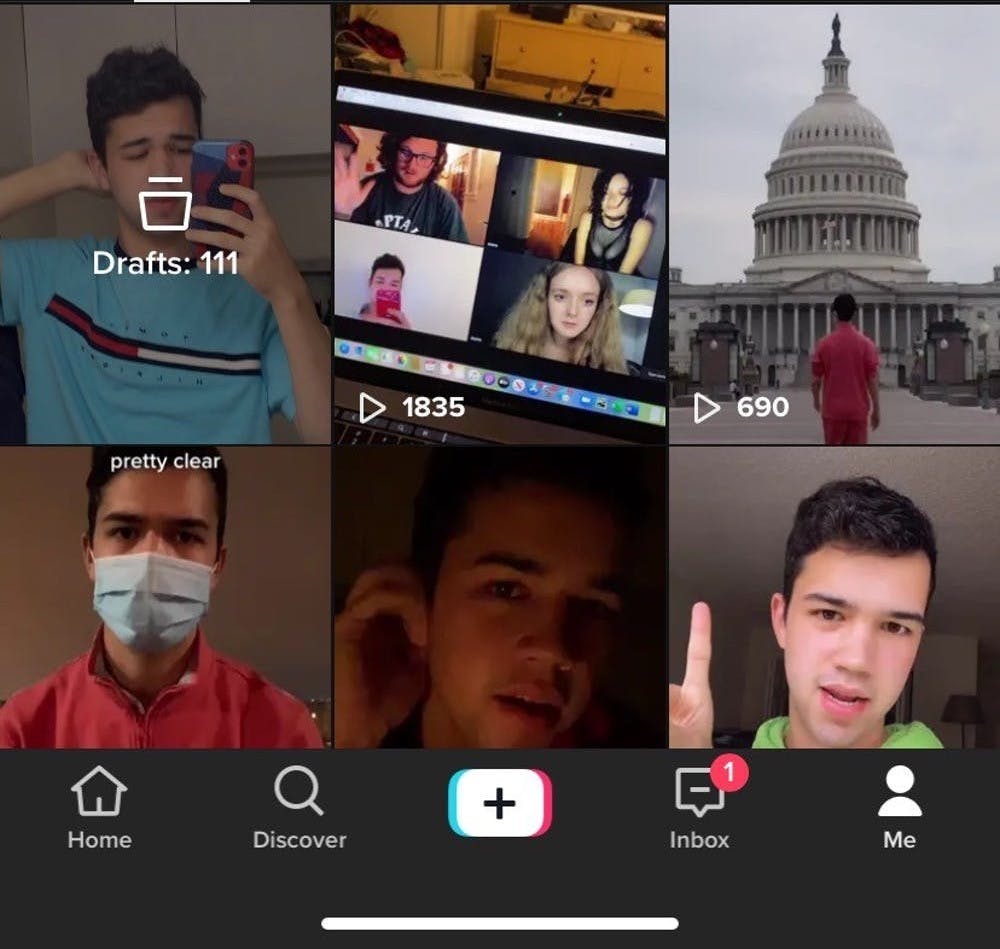Editor’s Note: SOC professor John Watson serves as a faculty adviser to The Eagle. He was not involved in the reporting, writing or editing of this piece.
After launching in 2016, TikTok now captures the screens and attention of over 100 million active U.S. users per month, including American University students who have turned to the app for entertainment and creativity. Now, users and creators are worried about what the future holds for the app.
In August, President Donald Trump signed an executive order that bans TikTok transactions. Trump argues that the app, which Chinese company ByteDance owns, poses a threat to national security by collecting data from Americans. After a federal judge blocked Trump’s efforts to ban the app, U.S. companies Oracle and Walmart made a preliminary deal with ByteDance to alleviate national security concerns by moving servers to the U.S. Trump has supported the deal.
Sophomore Sebastian Aguilar, a TikTok creator and app ambassador for AU through the company Fuse, is anxious about its future.
Aguilar creates a wide range of content, from comedic to inspirational to dance videos. He began his account out of curiosity, and wanted to test what users would like to see.
“I joined TikTok with a really simple idea, to put out stuff that others will find relatable or enjoyable,” Aguilar said. “For someone who doesn't come from a modeling, singing, dancing or acting background, it's very hard to grow a platform because my name is not out there. So, you really have to make a name for yourself. I kind of wanted to test those limits and see what I could do.”
Similarly, sophomore Sydney Whitcombe began her TikTok account for fun, initially putting her videos on private and then expanding content to a wider audience. As a user of the app, Whitcombe said TikTok has helped her learn about others.
“You're exposed to so many different types of people and situations,” Whitcombe said. “I don't hear a lot about extreme situations other people go through, and I probably would never have unless it was for downloading TikTok.”
While the Trump administration claims that TikTok threatens national security, others claim that a ban is akin to censorship. In a Sept. 18 statement, Hina Shamsi, director of the American Civil Liberties Union’s National Security Project, denounced Trump’s order on TikTok and WeChat, a Chinese-owned messaging and social media app.
“This order violates the First Amendment rights of people in the United States by restricting their ability to communicate and conduct important transactions on the two social media platforms,” Shamsi said in the ACLU’s statement.
However, School of Communication professor John Watson doesn’t think the issue of censorship will take much of a hold if the ban makes its way through court.
“The ACLU is presenting that because if you look at it through that lens, it is a First Amendment issue,” Watson said. “I think the courts will look primarily at the reasons Trump put forth, so it's going to be harder to get the First Amendment issue on the table.”
According to Watson, some Americans view the implications of the ban in a fundamentally different way than the Trump administration.
“The First Amendment won't be a significant barrier to what he's trying to do; although that is the argument you most often hear in the press because the American people worship the First Amendment,” Watson said.
For both Whitcombe and Aguilar, TikTok’s ban would be disappointing for the creators and users alike, as it would be difficult to shift to another platform and continue creating content for a receptive audience.
“If you move somewhere else and you're not a big content creator where your name is already known, you have to basically start from square one,” Aguilar said. “It would be so unfortunate because it's taken me almost like eight or nine months to grow this platform.”
Aguilar also said that a ban would disrupt the communities and connections that have been made over the app.
“You find people that come from very similar circumstances,” Aguilar said. “There's always one person for at least everyone out there; no one is ever left alone. So many people would feel lost.”
In late October, a federal judge postponed a Trump administration action that would effectively ban TikTok in the United States.





